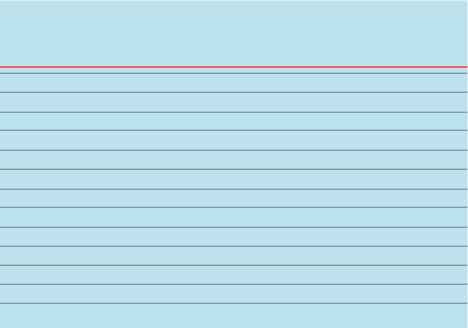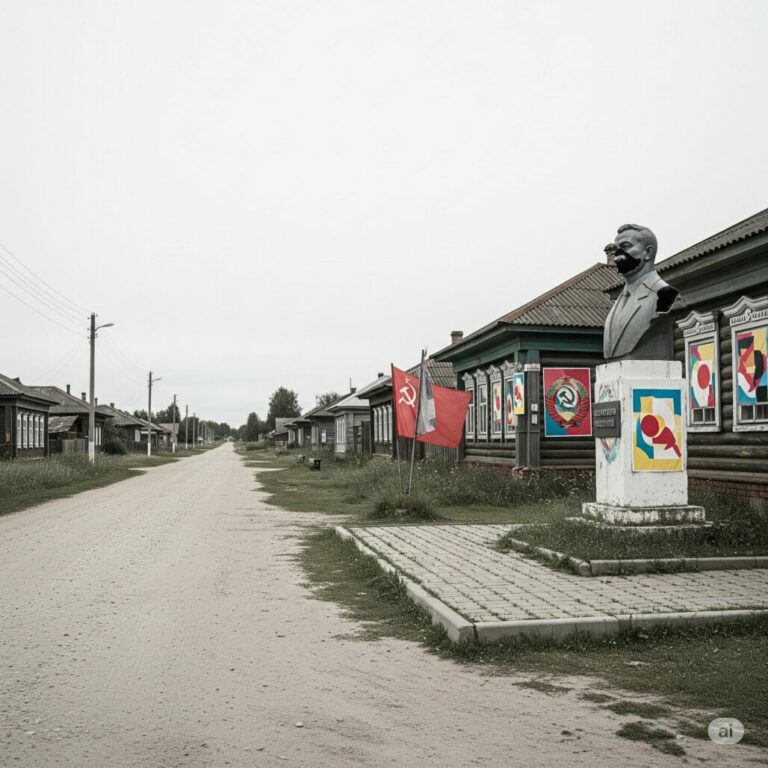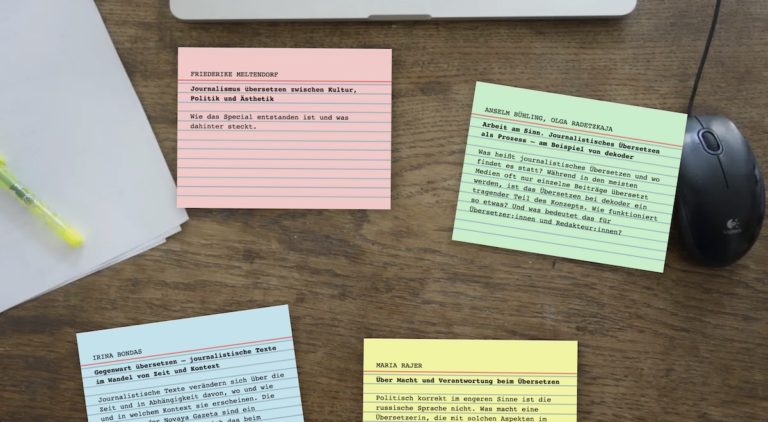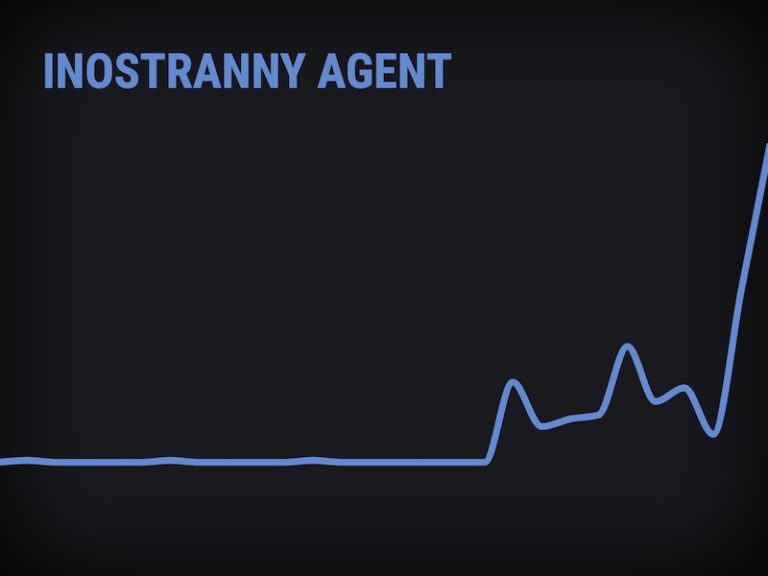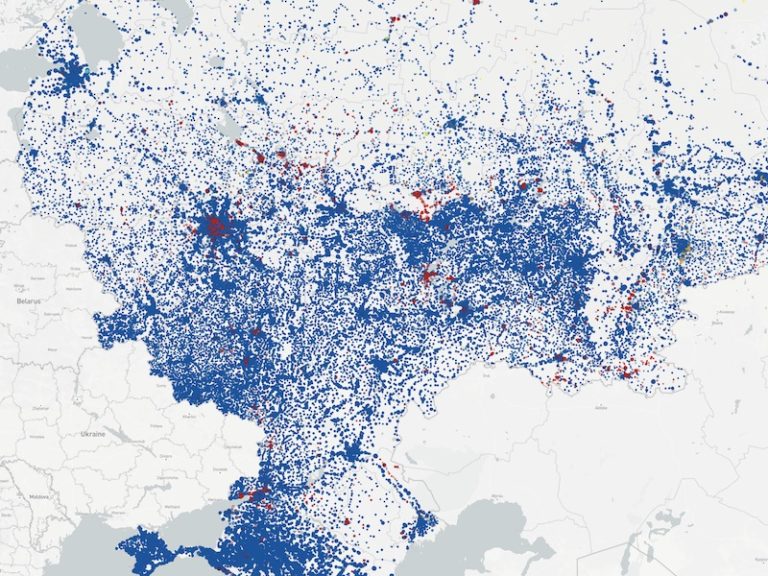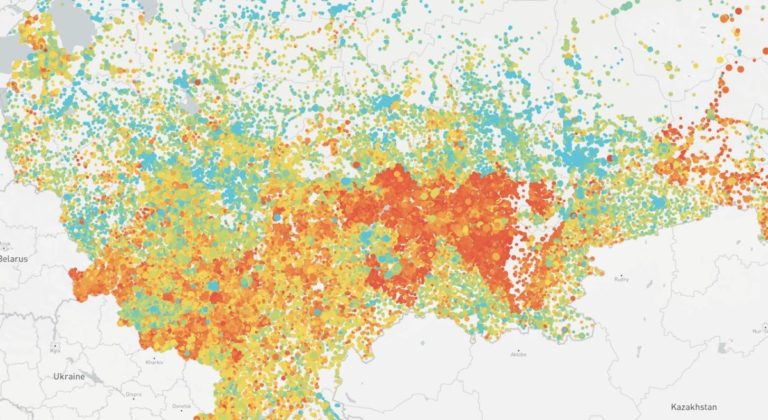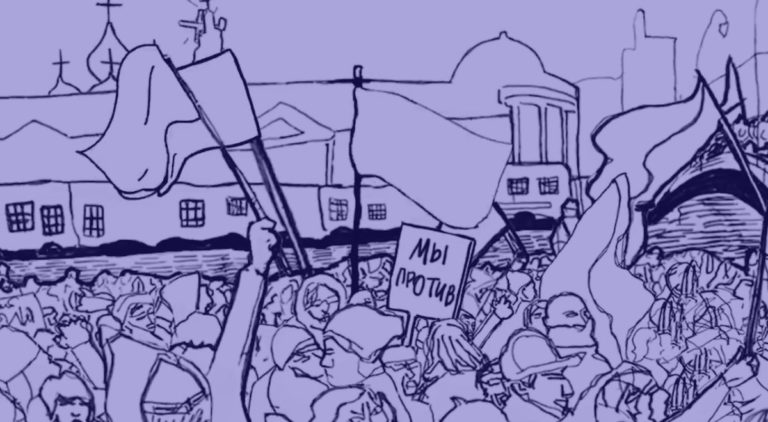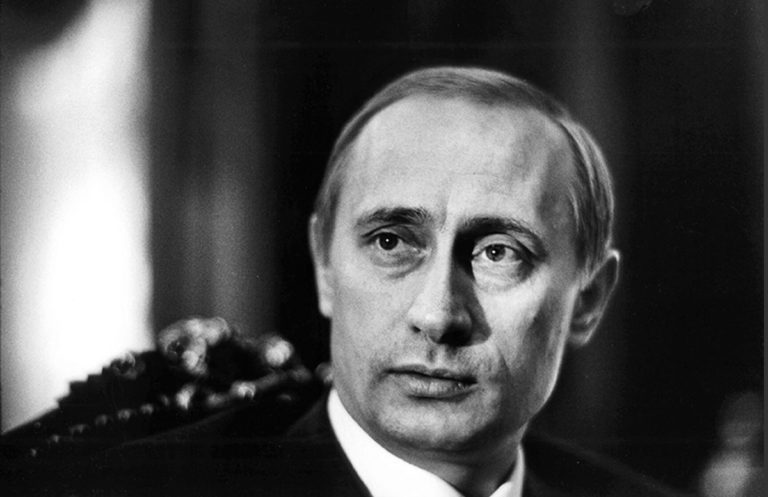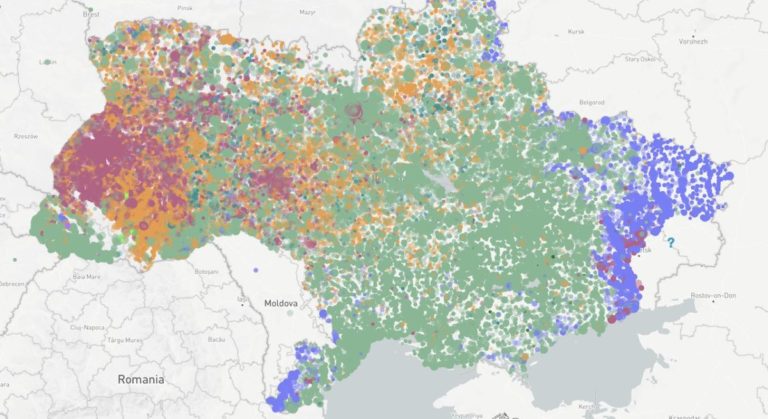Alexandra Berlina on asterisks, figs in the pocket and other forms of protest, as well as the difficult question of how to translate signals and anti-war symbolism.
Like most of my colleagues, I wrote the piece I originally intended to contribute to the translation special before the start of the war. Then came February 24, and such amusements suddenly seemed unforgivably frivolous. It is rare for a human brain to be able to maintain a state of shock for months at a time, though. Mine at least – after those first weeks of “How can this be true”, “Why is Putin still alive?”, “How can this be true?”, “What can I do?” and especially “How can this be true?” – soon went back to producing questions that had to do with translation.
When talking to German friends about the attitudes of the people I know in Russia, for instance, I nearly always found myself wondering how best to translate the expression figa v karmane, literally “fig in the trouser pocket”. The figa (fig sign) is made by tucking the thumb between the index and middle fingers; many who make it are unaware of any reference to the vulva. In the Russian-speaking world, the gesture is considered less objectionable than the middle finger. Thus “the bird in the trouser pocket” comes closer to the expression’s actual meaning – but even that does not capture all that the term conveys. “Clenching your fist in your pocket” might seem like a good option at first, but that doesn’t quite fit either. A fig in the pocket is not about an acute impulse of impotent rage, it is more of a basic attitude. Say you despise the regime, for example, but do not want to risk life and liberty – or, in “vegetarian” years, your career. You can still send a signal to “your” people and yourself that clearly states: you do not agree.
In Russia, you have to be very brave indeed to engage in open protest against the war. People have been arrested just for wearing a yellow t-shirt with a pair of jeans or posting a dove sticker on their Facebook profile. But there are little gestures – figs in the pocket – that one can normally get away with. For instance, when a book like All Quiet on the Western Front just happens to feature prominently on a publishing house’s website during the first weeks of the war. The state is usually not interested in that kind of thing, but it tells like-minded individuals that the people at the publishing house are not pro-Putin. But is this really an expression of protest or solidarity, or merely a form of self-deception? As the rapper Oxxxymiron put it in one of his tracks, figa v karmane uzhe stala sushenym inzhirom : The fig in the pocket has already become dried fruit .
Political memes used to be another kind of fig in the pocket for many people in Russia –
but the process of authoritarian consolidation (Gleichschaltung) is now far enough advanced that you could easily land in jail for posting a war-related meme. Even one made up only of asterisks.
The wonderful thing about memes, of course, is the way they concentrate and disseminate meanings. Thus the meme slogan khui voine/хуй войне (literally “dick to (the) war”, so “fuck war” or “fuck the war”) became so well known that people recognise it even when they see only “*** *****”. So too does the prosecutor’s office.
On 12 March 2022, an activist from Ivanova was arrested for carrying such a sign.
(For those who dislike mat, the slogan can also be read as net voine , “No to war”.)
So, does the interpretation of eight asterisks constitute a translation from Russian?
*** *****!
